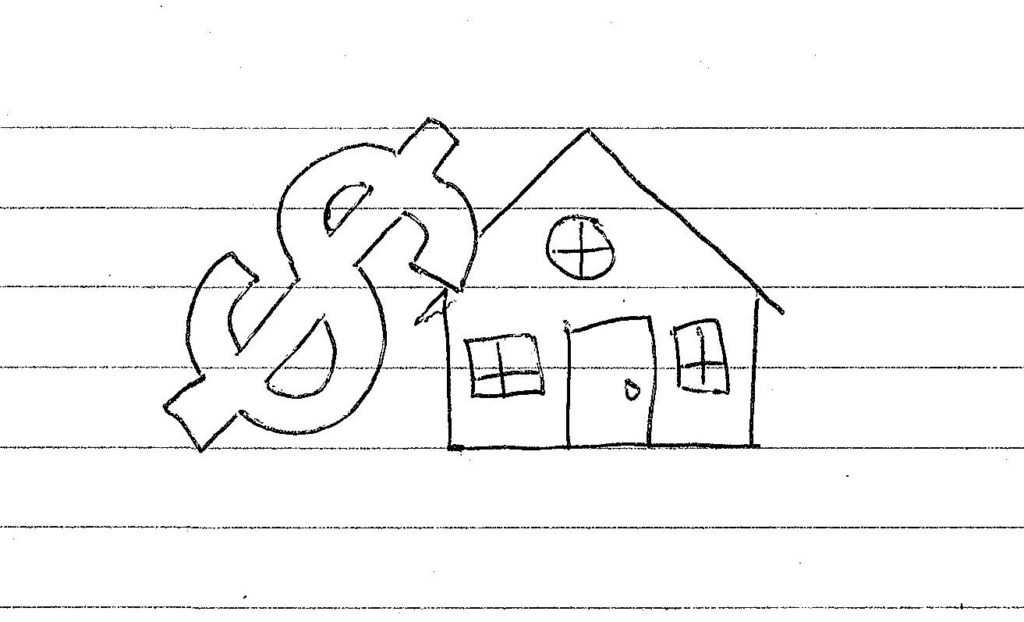What is a Lien?
A lien is essentially a notice that is filed with the county to let others know that the person who filed the lien has a right to collect money from you. The lien is secured against your property, such as your house. This means that if you want to sell your house under a warranty deed (ie: a deed that guarantees good title), the lien would have to be resolved first.
Anyone who improves your property can claim a lien.
Idaho’s lien law can be found in Idaho Code Title 45, Chapter 5. Under this law, when you hire a contractor to do construction work for you, that contractor has a right to secure payment for labor and materials by placing a lien on the property being improved.
The contractor is not the only person entitled to file such a lien. Idaho law grants any person who performs labor or provides materials to claim a lien. Engineers, surveyors, subcontractors, or architects who have had a hand in improving the property also have a right to lien.
Any person who files a lien is also entitled to bring a lawsuit demanding payment and the court “shall” award that person their costs and reasonable attorney’s fees. This, of course, means that having a lien filed against your property can be stressful and costly.
Protections to Homeowners
As stated above, homeowners may become subject to liens by contractor, subcontractors, material suppliers, engineers, architects, etc. Many times, the homeowner is just paying the general contractor on the belief that the general will be paying all the subcontractor and material suppliers. Unfortunately, this is not always the case. When a general fails to pay a sub, the homeowner may be surprised to find that the subcontractor has filed a lien. This means the homeowner may end up paying twice!–once to the general contractor and another time to the subcontractor.
Because of this potential problem, the Idaho legislature has determined that homeowners should be afforded some protection against liens. To do this, Idaho law requires contractors who enter into contracts greater than $2,000 to disclose to homeowners certain information set forth in Idaho Code 45-525. This includes five different disclosures:
1. Right to Know the Identity of Subcontractors and Suppliers.
A general contractor has to provide a homeowner a list of the business names, addresses and telephone numbers of all subcontractors, materialmen and rental equipment providers having a direct contractual relationship with the general contractor and who have supplied materials or performed work on the residential property of a value in excess of five hundred dollars ($500).
Again, the purpose of this disclosure is to ensure that a homeowner knows who is working on the project and can protect the property against potential liens.
2. Right to Obtain Lien Waivers.
A lien waiver ensures subcontractors and material suppliers have been paid. Once the general contractor pays the subcontractor, the subcontract signs a documents waiving all lien rights for that amount paid. Obtaining lien waivers is a way for homeowners to ensure that subcontractors are paid. The law states that the homeowner will have to pay the reasonable expenses for obtaining the waivers.
3. Right to Proof of Insurance.
The Idaho Contractor Registration Act requires contractors to carry general liability insurance that covers the scope of services they provide. For example, if a contractor does residential roofing, that contractor must carry insurance that will cover error and omissions over residential roofing.
This disclosure lets homeowners know that they can request the contractor to show proof that they have insurance to cover the type of construction being performed.
4. Right to Purchase Extended Insurance.
A contractor is only required to carry $300,000 in general liability insurance. If you have a project that may require insurance beyond this amount (or whatever amount the contractor carries), you can request and pay for an extended insurance policy to cover potential liens.
5. Right to Obtain Surety Bond.
A construction surety bond generally comes in two forms to protect a project owner: a performance bond and a payment bond. The performance bond is essentially a guarantee that the construction will be completed. For instance, if the contractor bails, you can make a claim on the performance bond and the surety should ensure the project gets completed as required in the contract.
The payment bond ensures that the contractor pays everyone who is supposed to get paid. This protects the homeowner from potential liens.
Idaho law states that the homeowner or residential real property purchaser shall have the right to require, at the homeowner’s or residential real property purchaser’s expense, a surety bond in an amount up to the value of the construction project.

